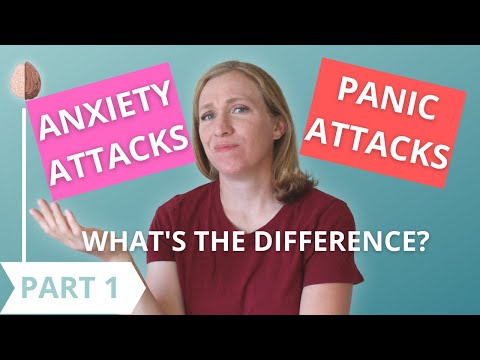What's the Difference Between Panic Attacks, Anxiety Attacks, and Panic Disorder? 1/3 Panic Attacks
Understanding mental health terminology can sometimes feel as overwhelming as the symptoms they describe. Terms like “panic attacks,” “anxiety attacks,” and “panic disorder” are often used interchangeably by people, but they have specific definitions and distinctions in the field of psychology. This is the first article in a three-part series designed to clarify these terms. Here, we focus on panic attacks.
**What Are Panic Attacks?**
A panic attack is a sudden onset of intense fear or discomfort that reaches a peak within minutes. During this brief period, individuals experience a variety of physical and psychological symptoms that can be highly distressing and overwhelming. The American Psychological Association notes that panic attacks can occur unexpectedly or can be triggered by specific stressors in some individuals.
**Symptoms of Panic Attacks**
The symptoms of a panic attack are both physical and emotional. They include:
– Heart palpitations or accelerated heart rate
– Sweating
– Trembling or shaking
– Sensations of shortness of breath or smothering
– Feelings of choking
– Chest pain or discomfort
– Nausea or abdominal distress
– Feeling dizzy, unsteady, lightheaded, or faint
– Chills or heat sensations
– Paresthesia (numbness or tingling sensations)
– Derealization (feelings of unreality) or depersonalization (being detached from oneself)
– Fear of losing control or “going crazy”
– Fear of dying
These symptoms are highly disruptive and can create a cycle of fear where individuals become scared of experiencing another attack, potentially leading to avoidance behaviors.
**Causes and Triggers**
The exact cause of panic attacks is not fully understood but is thought to involve a combination of genetic predispositions, environmental stressors, and underlying medical conditions. Specific triggers might include stressful life events such as losing a job, personal conflicts, health worries, significant changes like getting married or having a baby, and substance use.
**Diagnosis and Treatment**
To be diagnosed with panic attacks as part of either panic disorder (which we will cover more in the next part) or another psychological condition like depression anxiety disorders clinicians typically use criteria outlined in diagnostic manuals such as the DSM 5 Diagnostic criteria focus on the abrupt onset duration types number severity spontaneous occurrence frequency etc
Treatment options vary depending on individual needs but may include psychotherapy medications relaxation techniques lifestyle modifications Cognitive Behavioral Therapy CBT particularly effective helping individuals challenge change thoughts contribute towards feelings anxiety manage symptoms
In conclusion understanding what constitutes a panic attack its potential triggers crucial for identifying appropriate treatments interventions While these episodes can deeply unsettling they are manageable help available those who suffer from them In next article this series we will explore how panic disorder related but distinct from general panic attacks providing further clarity landscape anxiety-related conditions

